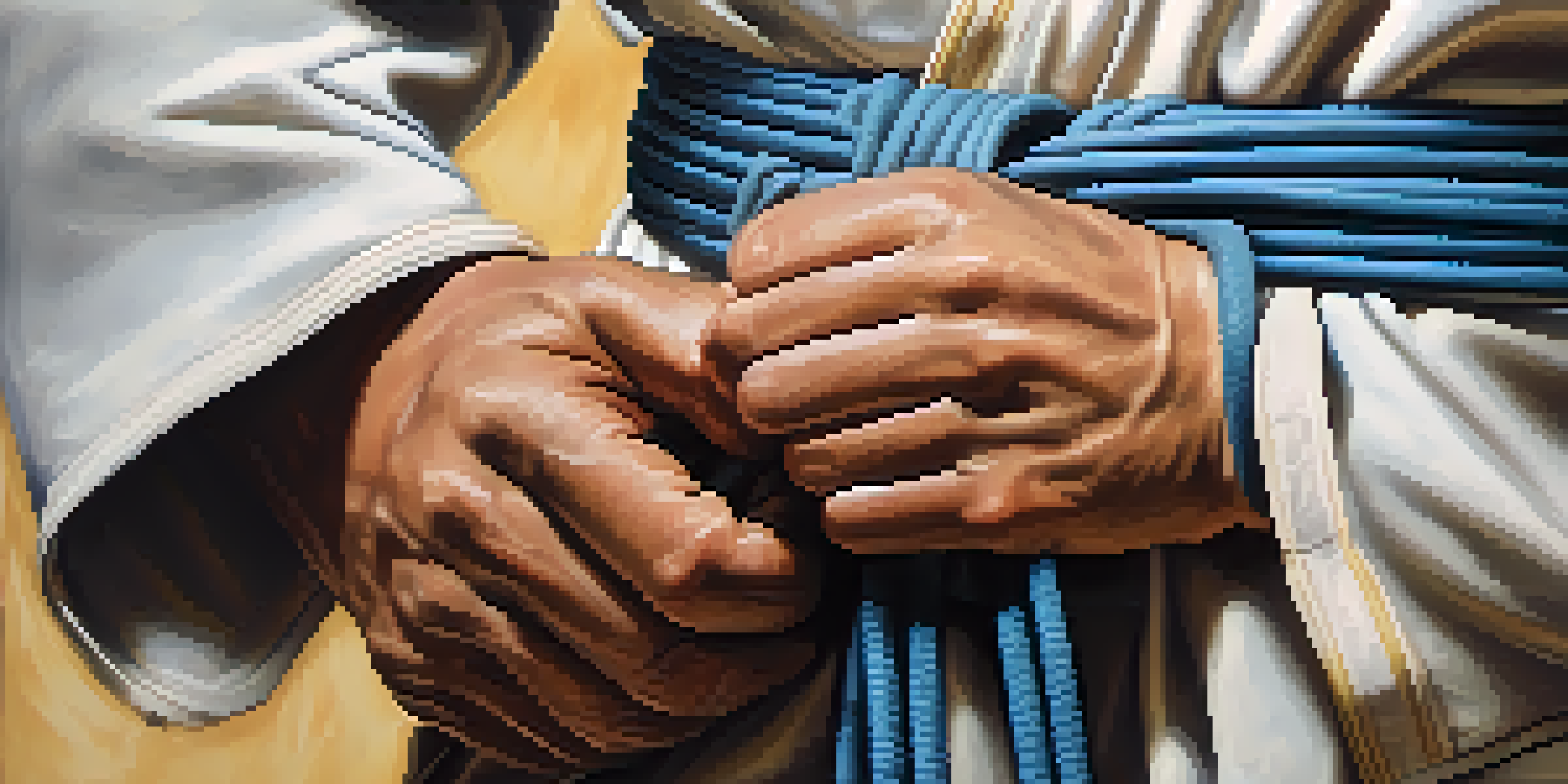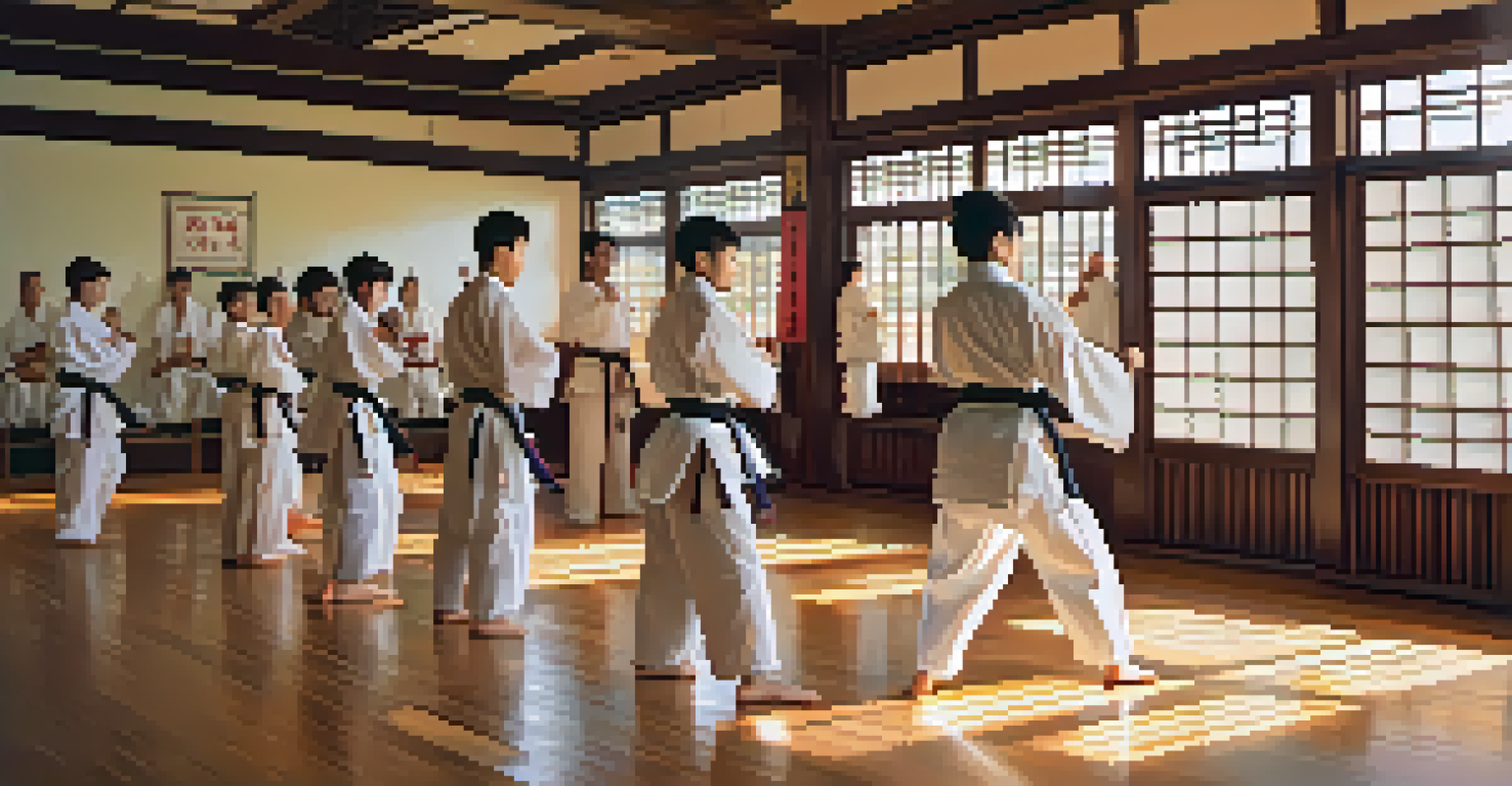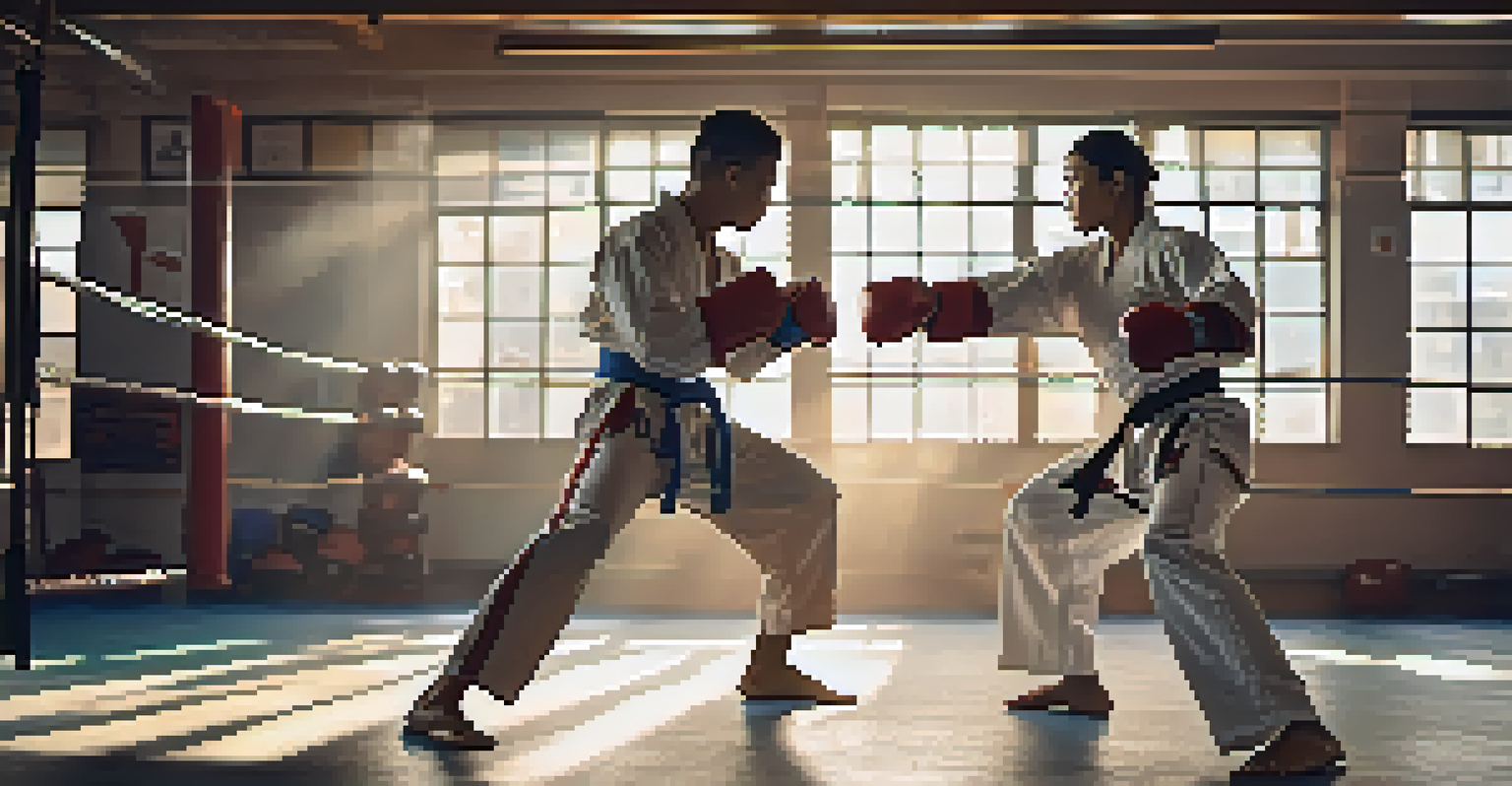Harnessing the Power of Martial Arts for Mental Resilience Boost

Understanding Mental Resilience and Its Importance
Mental resilience refers to the ability to adapt and bounce back from stress, adversity, or challenges. It's our mental 'muscle' that helps us navigate life’s ups and downs. Like physical fitness, mental resilience can be developed and strengthened over time.
Strength does not come from physical capacity. It comes from an indomitable will.
Building this resilience is crucial for maintaining our overall well-being. It allows us to face challenges with a positive mindset and aids in emotional regulation. By cultivating mental strength, we can handle life’s pressures more effectively.
Martial arts provide a unique avenue for developing this resilience. They not only promote physical strength but also emphasize mental fortitude, teaching practitioners to push through discomfort and adversity in a controlled environment.
The Role of Discipline in Martial Arts Training
Discipline is a cornerstone of martial arts training. Students learn to adhere to routines and respect their instructors, which fosters a sense of responsibility. This structured environment instills habits that can translate into other areas of life, enhancing mental resilience.

Through regular practice, martial artists cultivate self-discipline, which helps them manage distractions and maintain focus. This focus is essential when facing challenges, as it allows individuals to concentrate on solutions rather than problems.
Mental Resilience is Learnable
Mental resilience, akin to physical fitness, can be developed over time through practices like martial arts.
The process of setting goals and achieving them in martial arts builds confidence. Each belt earned or technique mastered reinforces the idea that persistence pays off, encouraging a resilient mindset that can withstand life's challenges.
Embracing Challenges and Overcoming Fear
Martial arts training is all about facing fears head-on. Whether it's sparring with a partner or performing in front of an audience, students are often pushed out of their comfort zones. This exposure helps individuals confront their fears and learn to manage anxiety.
It’s not whether you get knocked down, it’s whether you get up.
Each challenge faced in martial arts is a lesson in resilience. When practitioners learn to take risks and face adversity, they develop a stronger mental framework for handling stress in daily life. Over time, this leads to improved self-esteem and a more positive outlook.
Moreover, the ability to stay calm under pressure is a vital skill gained from martial arts. Practitioners learn to control their breath and emotions, which can be applied to various high-stress situations outside the dojo.
The Connection Between Mind and Body
Martial arts emphasize the crucial link between mental and physical health. The practice requires intense focus, coordination, and awareness, creating a holistic experience that engages both mind and body. This connection enhances overall well-being.
By training the body, practitioners also train the mind. The discipline involved in mastering techniques fosters mental clarity and sharpens decision-making skills. This clarity aids in navigating life’s complexities with ease.
Discipline Enhances Focus
Martial arts training fosters discipline that translates into improved focus and resilience in various life challenges.
Furthermore, physical activity releases endorphins, which are natural stress relievers. This biochemical response not only boosts mood but also reinforces the mental resilience developed during training, creating a positive feedback loop.
Building a Supportive Community
Martial arts often foster a strong sense of community among practitioners. Training alongside others creates bonds based on mutual respect and shared experiences. This support network is invaluable for mental resilience.
When facing personal challenges, having a community to rely on can make a significant difference. The encouragement from fellow martial artists can motivate individuals to persevere and not give up, reinforcing their mental toughness.
Additionally, sharing experiences and learning from one another fosters a sense of belonging. This feeling can alleviate feelings of isolation and promote emotional well-being, further strengthening mental resilience.
Mindfulness and Focus in Martial Arts Practice
Mindfulness is a key component of martial arts training. Practitioners are taught to be present in the moment, focusing solely on their movements and breathing. This practice cultivates a heightened sense of awareness and mental clarity.
By incorporating mindfulness, martial artists learn to manage their thoughts and emotions more effectively. This skill helps individuals detach from negative patterns and promotes a more resilient mindset when faced with difficulties.
Community Strengthens Resilience
A supportive community in martial arts provides encouragement and shared experiences that bolster mental toughness.
The ability to concentrate fully on the task at hand also enhances performance. When distractions are minimized, practitioners can execute techniques with precision, reinforcing their confidence and mental strength.
Applying Martial Arts Principles to Daily Life
The principles learned in martial arts can be seamlessly applied to everyday challenges. Skills like discipline, focus, and resilience are transferable, helping individuals navigate work, relationships, and personal growth. This crossover amplifies the benefits of martial arts training.
For instance, when faced with a daunting project at work, the mindset built from martial arts can encourage a step-by-step approach, just like mastering a new technique. This strategy helps in managing stress and maintaining motivation.

Ultimately, the lessons learned on the mat can empower individuals to face life's obstacles with confidence. By harnessing these principles, anyone can enhance their mental resilience and thrive in various aspects of their lives.